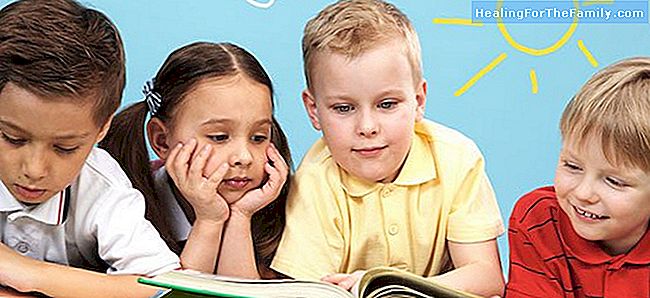Why children should read fables
Parents should encourage reading from the earliest stages of childhood. Reading will bring many benefits and all good. Even before they even know how to read, we can read them stories and stories, and thus lay the foundations for the child to become a good reader. One of the readings we can perform
Parents should encourage reading from the earliest stages of childhood. Reading will bring many benefits and all good. Even before they even know how to read, we can read them stories and stories, and thus lay the foundations for the child to become a good reader.
One of the readings we can perform with children are the fables, it is short stories, written both in verse and in prose, whose main characters are usually animals or inanimate objects that have human characteristics. The intention of the fable is to teach, educate and learn, therefore all enclose a moral.
7 benefits of fables for children

1- Teach values: Through fables children will learn values such as empathy, generosity, solidarity, kindness or effort.
2- Children learn to differentiate good from bad. In the fables usually appear characters to whom bad things happen when their behavior has been negative and vice versa.
3- Stimulate the love of reading: they are short stories, easy to read and understand, so they are a great vehicle to introduce the child to the pleasure of reading.
4- Promote reflection: The fables end with a final moral that stimulates the child to think and reflect on what happens, therefore also stimulate the child's thinking and critical capacity.
5- Stimulate creativity and imagination: these stories are usually carried out by animals that act as people. This helps the child to work his imagination.
6- Connect the children with the animals: help the children to generate affection for the animals, and by extension, to behave responsibly and kindly with them.
7- For any age: there is no specific age to read fables. They are for children and adults and can accompany the child throughout its development.












